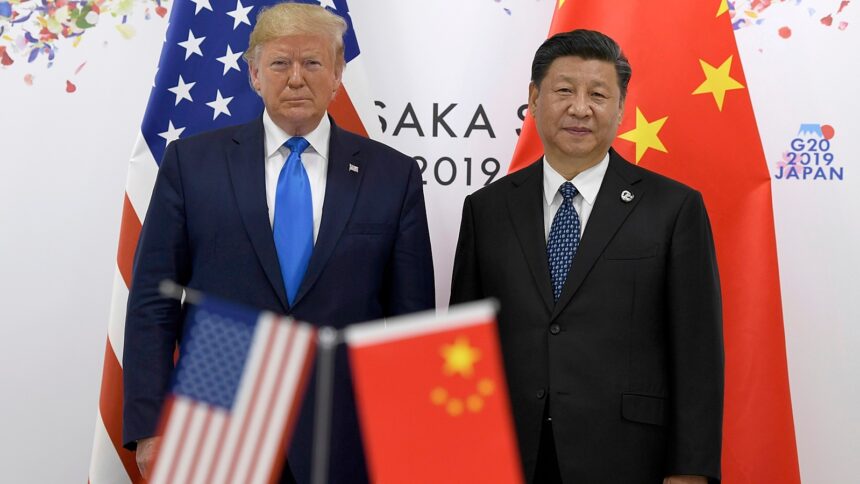In the unfolding “Mexican stand-off” between the United States and China, it is increasingly likely that Washington DC could back out. Indications of this were clearly evident when US President Donald Trump claimed over the weekend that he had spoken directly with President Xi Jinping on the trade issue. Chinese officials responded to this by categorically stating that no talks have taken place about a trade war, with an official spokesperson saying that “China and the US have not held consultations or negotiations on the issue of tariffs. The United States should not confuse the public”.
Trump’s against the rest of the world, which has now been whittled down into a bilateral trade war with China. Under this, the US currently has in place a 145 per cent tariff on Chinese imports, China has slapped a retaliatory 125 per cent tariff on the US, alongside restrictions on exports of “rare earths” to the US. This pretty much makes the situation akin to an outright trade embargo between the top two economies of the world, and is ostensibly untenable in the long run. The game of chicken between the two countries has to come to an end. The question, though, is who will blink first? For all his bluster, Trump increasingly looks to be the candidate.
Staying Power
In terms of continuing with these tariffs, the US faces multiple disadvantages. The impact of Trump’s escalating trade war with China has already begun to show up, with American port operators and air freight handlers reporting steep drops in imports from China, according to a report by the Financial Times. Retailers such as Walmart and Target have already warned of empty shelves and higher prices soon.
To add fuel to fire, retail major Amazon was reported to be considering a plan to display the additional tariff on some products along with the final cost on the website. A CNN report Monday citing two senior White House officials said that as soon as Trump learnt about this, he called Bezos complaining about this plan. Later, when reporters asked Trump, he did acknowledge that he spoke with Bezos. Amazon has predictably decided to beat a retreat for now. But the prospect of spiralling and empty retail shelves is a ticking time-bomb for the Trump White House, especially the more sane voice in the administration — Treasury Secretary Scott Bessant. There are also concerns of a further unwinding of positions in the US bond market, which is a looming worry for this administration.
Between the US and China, it does seem that Beijing could have greater leverage and the staying power in managing an escalatory tariff spiral, at least in the short term. Unlike Trump, Chinese President Xi Jinping is not faced with elections anytime soon, there is very little internal opposition to his management of the economy at this point in time, and the country is already in the middle of a stimulus package roll out that includes a combination of fiscal and monetary measures.
Chinese Resilience
While there is no denying that China has manipulated the global manufacturing sector through unfair means and there are legitimate grounds for challenging the country’s stranglehold over manufacturing exports and its intent to weaponise trade, Beijing has far greater staying power in this trade stand-off with the US. Beijing also has the option of stepping up its internal project of deepening the country’s domestic consumption market, something that will take in some of its export surpluses if the tariff war were to be long drawn out. It can continue its fiscal stimulus package too well into the future.
The US is at a disadvantage in all of this. There is little firepower on the fiscal side, except the prospect of an extension of corporate tax concessions that Trump had promulgated in his last term. Worryingly, there is also an impending showdown that the Trump administration is likely to have with the US Federal Reserve on the issue of cutting interest rates, which Federal Reserve Chair Jerome Powell has indicated is unlikely to happen anytime soon.
According to Martin Wolf, chief economics commentator at the Financial Times, China is likely to come out better than America in their escalating trade war. “The Americans will have to be much cleverer than they’ve been so far (in this trade war with China). I mean, much cleverer to avoid eventually losing… China has tremendous room for maneuver. America, on the other hand… It’s politically fragile. The economy looks somewhat fragile now. The markets look fragile… This trade war is going to damage American business very, very considerably. It’s going to make the supply chains in America extremely fragile already, likely to break quite a number of them. The supply shock here could be really quite damaging”, he told








